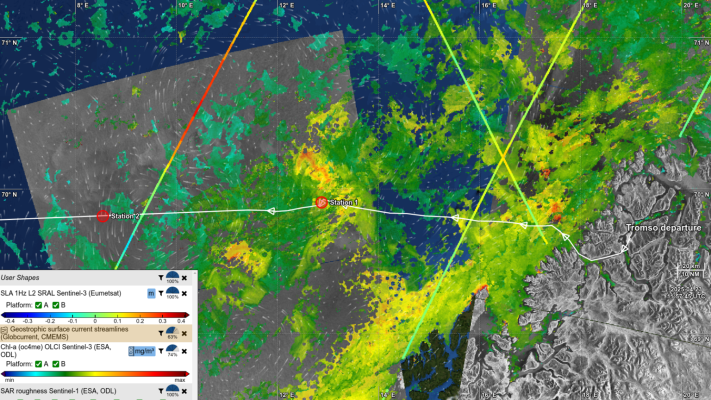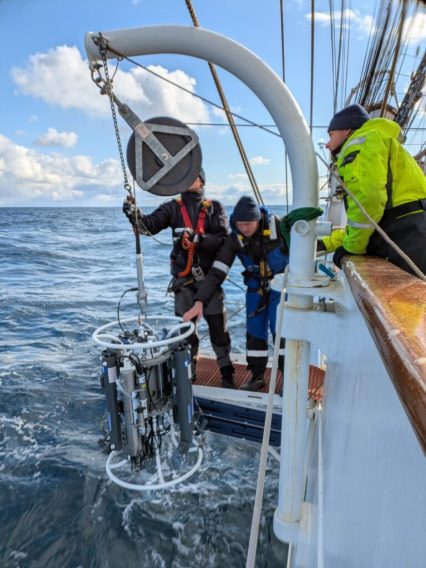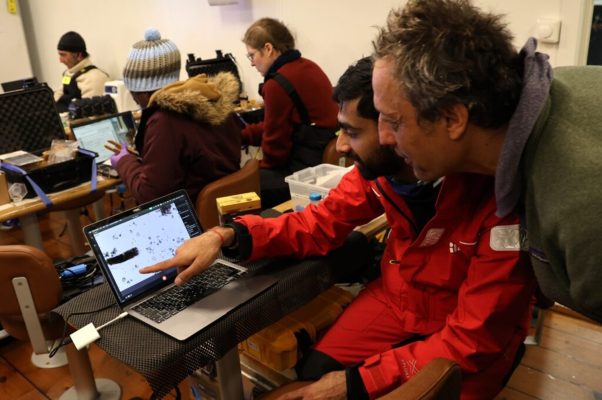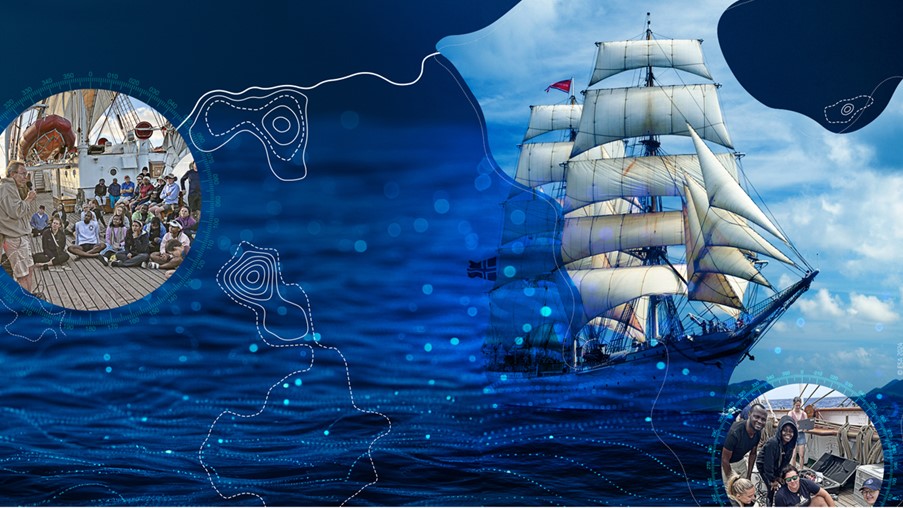The One Ocean Expedition (2025–2026) has embarked on a global voyage aboard the Norwegian tall ship Statsraad Lehmkuhl, aiming to raise awareness about the ocean’s pivotal role in a sustainable future at global level. As part of this journey, the European Space Agency (ESA) organises the Advanced Ocean Synergy Training Course 2025 (#OTC25), blending satellite data analysis with hands-on oceanographic research.
The course includes a shore-based component – modules which ran online once per week between November 2024 and April 2025 – and the ship-based component aboard the above mentioned Statsraad Lehmkuhl, sailing from Tromsø, Norway, to Nice, France, via Reykjavik, Iceland.
The shore-based component modules tackled different aspect of satellite-based ocean observations. Participants explored how Earth Observation instruments work, what they measure—from ocean colour to sea surface salinity—and how to apply these data in ocean science. Framed as a “virtual voyage” mirroring the shipboard component, the course spanned topics from air-sea interactions and upper ocean dynamics to marine biology and climate change. Students gained hands-on experience with tools like the Ocean Virtual Laboratory (OVL).

The OVL is a powerful platform that integrates satellite data, in situ observations, and outputs from ocean and weather models into a single, seamless interface. Used both onboard and onshore, OVL enables participants to visualize their voyage in near-real time and make informed decisions on sampling strategies and locations. It provides a dynamic, global view of ocean conditions. By combining EO data with direct measurements, the course enhances the understanding of ocean-atmosphere interactions, contributing to climate research and marine ecosystem monitoring.


Follow life and science onboard in a 21st -century Captain’s log, the ESA dedicated blog.
“OTC25 is more than a training course. It gives the students a unique opportunity to intimately “feel” the ocean, experience its complexity and therefore realise the many sources of errors in measuring it, both in-situ and from space. This new understanding and awareness will be invaluable for their future research”, says Marie Helene Rio, Ocean Scientist and OTC25 Lecturer from ESA.
This initiative not only advances scientific knowledge but also cultivates the next generation of ocean scientists, aligning with global efforts like the UN Decade of Ocean Science for Sustainable Development.
“It is a unique experience both scientifically and from a human perspective, which will lead without any doubt to a great network of a new generation of ocean scientists. Through this initiative, ESA invests in the future of ocean research in Europe”, according to Inge Jonckheere, Head of the Green Solutions Division from ESA who participated as an OTC25 Lecturer on the ship-based component.

